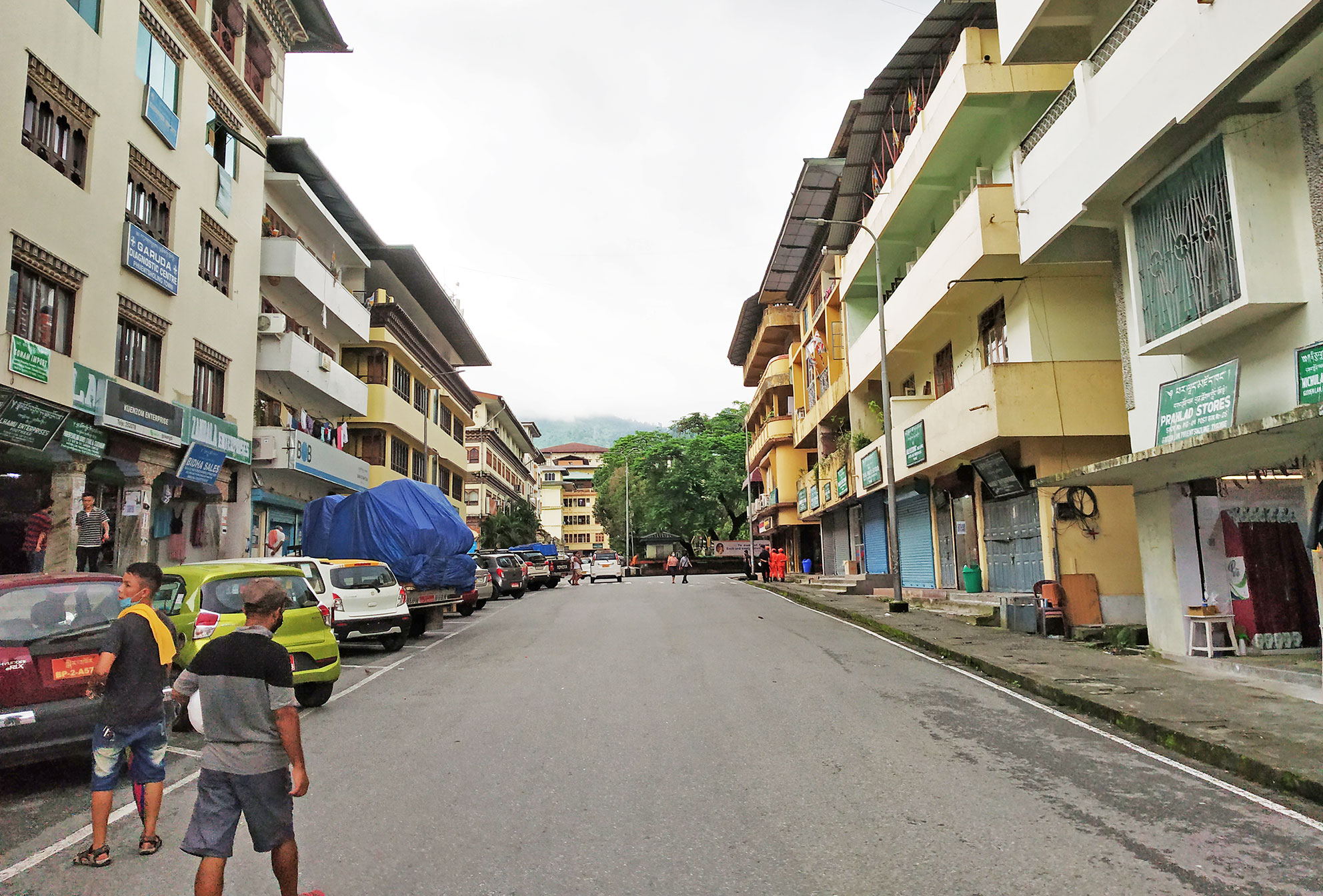Rajesh Rai | Phuentsholing
After the government ordered to close down entertainment centres in the wake of the pandemic, Tshering Yangzom,32, a karaoke owner in Phuentsholing opened up a grocery shop for sustenance.
Although the business is not lucrative, two months later today, she is able to pay salaries to her two former karaoke staffs.
The grocery shop she runs was as a tailor shop prior to the pandemic. After the March 25 lockdown, the tailors, all non-Bhutanese couldn’t enter Phuentsholing leaving a lot of space available if owners wanted to rent out.
“Mine was advertised and I took it over,” Tshering Yangzom said.
However, not everyone is as lucky as her. Business has bounced back in Phuentsholing, but many are struggling to find a space to operate one. This is with several shops closed and operators stranded across the border in Jaigaon. Building owners still get their rents.
This, many observed is a typical example of fronting deeply rooted in the bordering town.
Requesting anonymity, a businessman, who closed his labour recruitment agent, said he had been looking for a space for the last four months.
“There are shops that are still closed. But the owners wouldn’t give it to us,” he said, adding that the owners asked him to negotiate with the people who operated the business in their spaces prior to the pandemic but are across the border now.
“This is a clear picture of how rampant fronting is in this town.”
He said he even negotiated with one non-Bhutanese across the border. He was asked a monthly rent of Nu 40,000, Nu 10,000 more than what he pays. Another businessman wanted to expand his business and identified two spaces previously run by people from across the border. He couldn’t get them.
“The owner said that the individuals across the border were still paying the rents.”
As per the trade office, more than 100 shops were closed as of April 2020. However, the number kept on changing as some were found closed for lunch break, some opened and closed for other personal reasons.
However, many shops that were closed right after the lockdown have opened up. Bhutanese counterparts are managing the shops, which many say was a good idea as it generated some employment.
“Businesses in these shops are managed through phone calls from across the border,” said a local businessman.
Recently, a Bhutanese man who had offered his license to run an electrical repair shop was shocked to find that his license was not in the shop. The repair shop owner, a non-Bhutanes had given the shop key to his friend and asked to lift the license. This came to surface when police intervened. The license holder wanted to run the shop himself.
There are also more than 140 shops run by people from across the border, but are legitimate Bhutanese trade licenseholders. Most have been doing business since the 1960s and 1970s. As per the trade office, some have closed due to lack of skilled labourers or business opportunities.
As per Rule 3 of the “rules and regulations for establishment and operation of industries and commercial ventures in Bhutan (1995),” fronting is not allowed. It states: “A license shall not engage in ‘fronting,’ in other words, leasing of the license to another party to run the business. Violation of this rule shall result in cancellation of the license and immediate closure of business.”
While finding a space to operate business is a challenge, shop rents are also increasing in the town.
Tshering Yangzom said she pays Nu 30,000 per month. As a tailor shop before, the space’s rent was Nu 15,000.
“My friends were shocked,” she said. “However, I took it because I had to sustain.”


